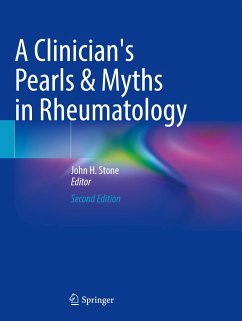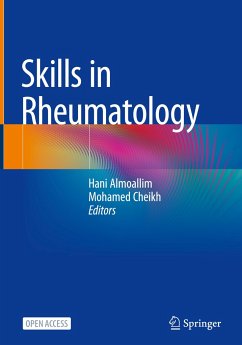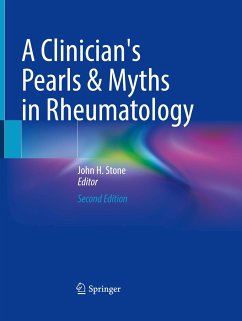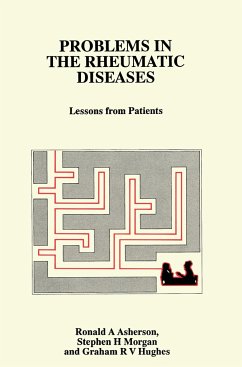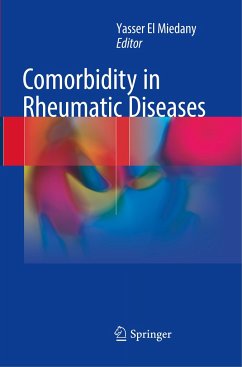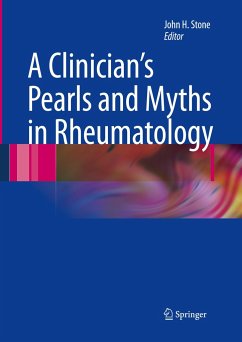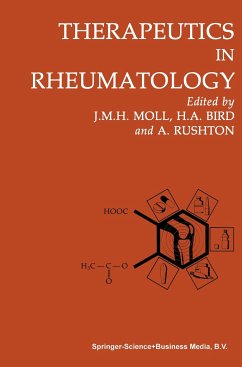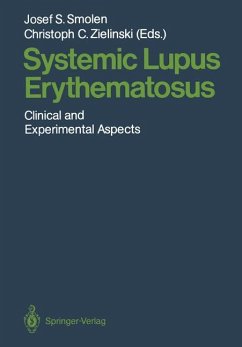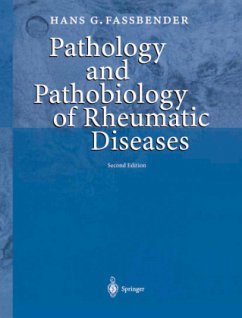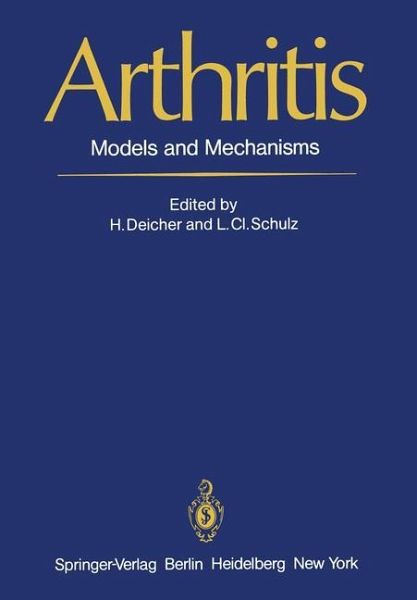
Arthritis
Models and Mechanisms
Herausgegeben von Deicher, H.; Schulz, L. C.

PAYBACK Punkte
39 °P sammeln!
Rheumatoid arthritis is a common disease, an estimated 1. 5% of the population being under medical treatment for it in European countries and elsewhere. However, to date the origin of this chronic inflammatory disorder has not been elucidated. Evidence for the involvement of microbial agents is still tenuous, the rea son for the defective control of inflammation is still unknown, and the disease all too of ten progresses to crippling stages despite long-term treatment. As T. McKeown recently stated with regard to rheumatoid arthritis, "not enough is even known to indicate which is the more pro...
Rheumatoid arthritis is a common disease, an estimated 1. 5% of the population being under medical treatment for it in European countries and elsewhere. However, to date the origin of this chronic inflammatory disorder has not been elucidated. Evidence for the involvement of microbial agents is still tenuous, the rea son for the defective control of inflammation is still unknown, and the disease all too of ten progresses to crippling stages despite long-term treatment. As T. McKeown recently stated with regard to rheumatoid arthritis, "not enough is even known to indicate which is the more promising approach, and the pru dent course is to investigate both origins and mechanisms". While working on animal model diseases as well as on aspects of rheumatoid arthritis and related disorders in man, the members of the Special Research Area on patho physiology of rheumatoid inflammation in man and. animals (Sonderforschungsbereich 54 "Pa thomechanismen der rheumatoiden Entztindung bei Mensch und Tier"; maintained by the Deut sche Forschungsgemeinschaft) at the Veterinary and Medical Schools, Hannover, have been guided by the concept that by studying clinically and morphologically similar diseases in several species, mutually stimulating results might lead to improved knowledge of the pathophysio logy of rheumatoid arthritis. In particular, from working with model diseases in animals new approaches to the etiology of rheumatoid arthritis might be derived, while detailed knowledge of pathogenetic processes in rheu matoid arthritis could further research in chronic stages of pertinent animal diseases.





